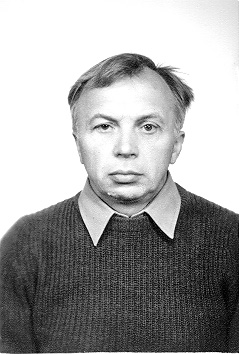Coxeter Lecture Series: Vladimir Buslaev
Description
 |
Topics November 5, 1997 - Connection between the singular spectrum of linear operators and the theory of dynamical systems November 7, 1997 - Spectral theory of the difference equations with periodic coefficients |
Abstract
1st Lecture
The theory of scattering for nonlinear waves only started in recent years. Some essential results have already been obtained and although they do not yet form a rigorous theory they suggest the shape of future developments. Creation and annihilation of special solutions of the soliton type will certainly play an important role. Such processes are not possible in the linear scattering theory.
2nd and 3rd Lectures
These lectures will be devoted to the spectral theory of difference operators with periodic coefficients and its connection with the theory of dynamical systems. Classical results about the ordinary differential operators with periodic coefficients declare that their spectrum consists of (infinite) number of intervals and that it is absolutely continuous. In contrast, difference operators with periodic coefficients give the principal example of operators with purely singular spectrum which is geometrically a Cantor set. Under the influence of physicists working in different fields such operators began to attract more and more attention in the last twenty years.
The geometry of the spectrum of difference operators is closely related to the behaviour of some special dynamical systems displaying hyperbolic properties. This suggests that the description of the spectrum can be given by a procedure quite analogous to the classical Cantor process. The points of the spectrum can then be numbered by using symbolic dynamics.
These lectures will be delivered November 3, 5, 7 at 4:20 pm in frames of the program Microlocal Methods in Geometric Analysis and Mathematical Physics (fall 97) and will be immediately after Workshop Microlocal Methods and Mathematical Physics.
Schedule
| 16:20 to 17:20 |
Lecture 1
Vladimir Buslaev |
| 16:20 to 17:20 |
Lecture 2
Vladimir Buslaev |
| 16:20 to 17:20 |
Lecture 3
Vladimir Buslaev |

